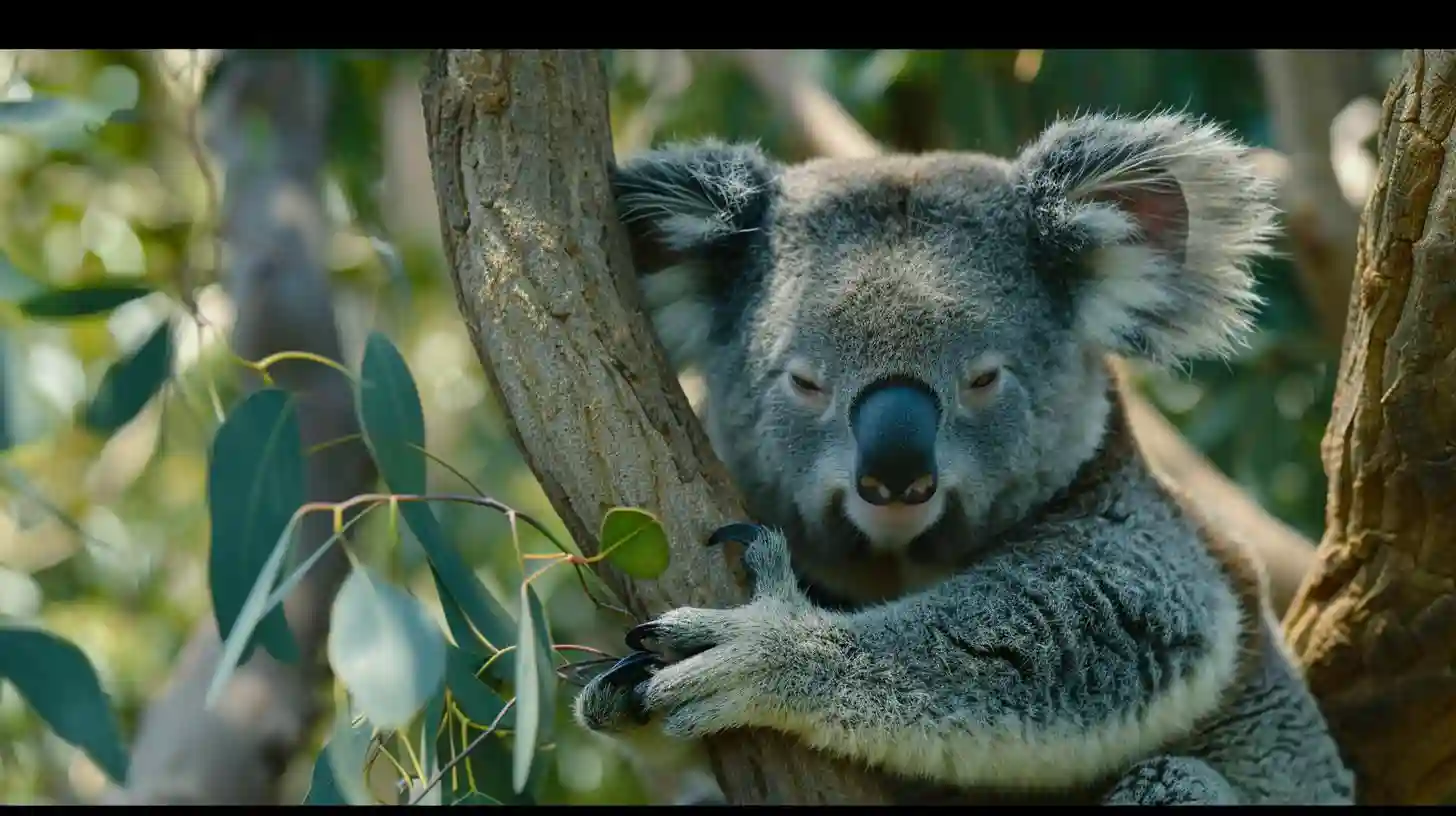
The koala, often called "koala" due to its bear-like appearance, is a unique and beloved marsupial native to Australia. Known for their cute face, round fluffy ears and sleepy demeanor, koalas are a favorite among animal lovers around the world. However, despite their popularity, there are many misconceptions about these adorable animals. In this article we will take a closer look at the character, behavior of koalas and how to properly care for them.
Personality and behavior
Koalas are known to be solitary and sedentary animals. They usually spend most of their time resting in trees, sleeping up to 18-22 hours a day. When they are awake, they can usually be seen eating eucalyptus leaves, their main source of food. Despite their docile appearance, koalas can be quite territorial and will defend their territory from other koalas. They communicate through a series of grunts, squeaks and barks, which are used to establish dominance or attract a mate.
By temperament, koalas are generally gentle creatures. They are not aggressive towards people, but can become stressed if handled or approached too closely. When spotting koalas in the wild, it is important to respect their space and observe them from a safe distance. In captivity, koalas can become accustomed to interacting with people, but they still require a high level of care and attention.
Raising a Koala
Raising a koala can be a challenging and rewarding experience. If you are considering adopting a koala or caring for one at a sanctuary or zoo, there are a few key factors to consider. First of all, it is important to understand the nutritional needs of koalas. Their diet consists almost entirely of eucalyptus leaves, which are high in fiber and low in nutrients. Feeding them the wrong leaves can lead to health problems, so providing the right variety of eucalyptus species is essential.
Besides diet, koalas also require a suitable environment to thrive. They are arboreal animals, meaning they spend most of their time in trees. Providing them with a spacious enclosure with plenty of trees and branches to climb and explore is essential to their well-being. Koalas are also sensitive to temperature changes, so it is important to maintain a constant climate in their living space to keep them comfortable.
Another important aspect of raising a koala is veterinary care. Koalas are susceptible to a variety of diseases, including chlamydia, which can be transmitted through stress or close contact with other koalas. Regular medical checkups and monitoring are critical to ensure their overall well-being. Additionally, providing additional activities such as puzzle feeders, climbing structures, and sensory stimulation can help koalas stay mentally and physically active.
Conservation efforts
Koalas face numerous threats in the wild, including habitat loss, climate change and disease. As a result, their populations have been declining in recent years, prompting conservation efforts to protect these iconic creatures. One of the biggest threats to koalas is deforestation, which has destroyed much of their natural habitat. By supporting organizations that work to preserve koala habitats and promote sustainable land management practices, people can play a vital role in protecting these animals for future generations.
Additionally, raising awareness of the importance of koala conservation is critical to ensuring their survival. Educating the public about the threats koalas face and the actions they can take to help can have a significant impact. Participating in fundraising events, supporting wildlife sanctuaries and advocating for policies that protect koalas and their habitats are all ways to contribute to their conservation.
The koala is a beloved and iconic species that holds a special place in the hearts of animal lovers around the world. Despite their laid-back behavior, koalas are complex creatures with specific dietary, environmental and social needs that must be met to ensure their well-being. By understanding their personality, behavior and conservation status, people can play a critical role in protecting these unique marsupials for future generations. Let's all do our part to ensure a bright future for the wonderful koala.